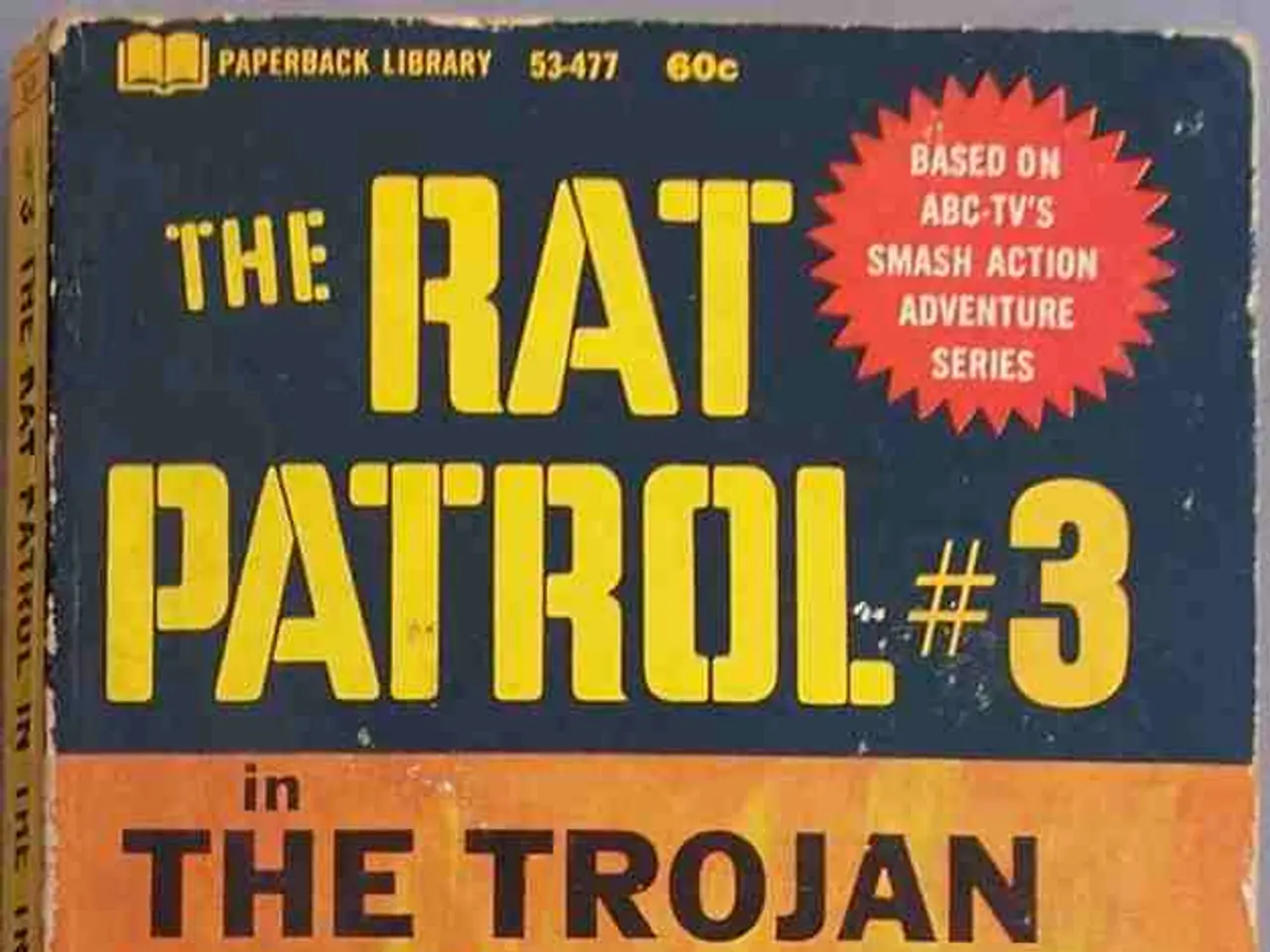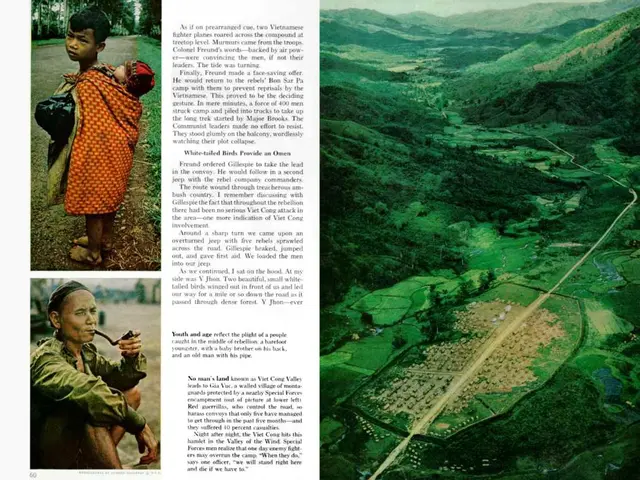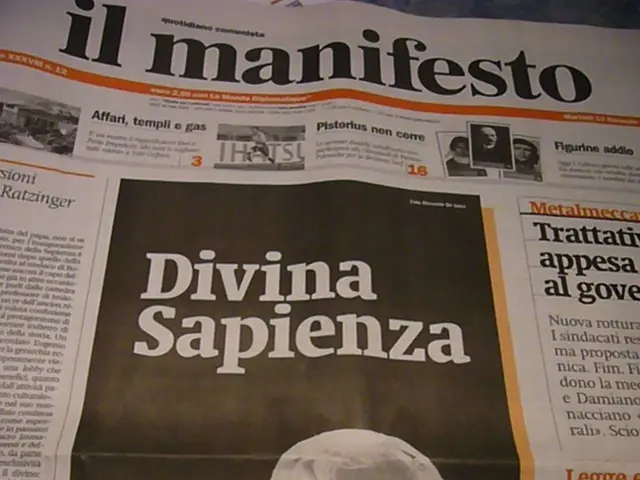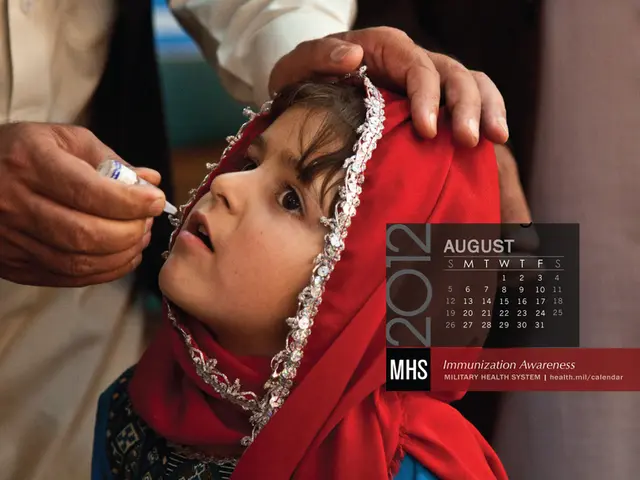Exploration of Death's Accomplices
In the year 2023, the destruction of Gaza became a global concern, with many questioning the role of various countries in the tragedy. Many Jews have expressed their rejection of the weaponization of their memory in relation to the destruction of Gaza, as the intent to destroy a large part of the population, including children, was explicitly stated by the highest Israeli political and military authorities. The actions of several European heads of state and several countries, including the United States, Germany, the United Kingdom, and France, sent weaponry to the Israeli armed forces after October 7, 2023. Many Western states, as well as countries in Eastern Europe, South Asia, and Latin America, acquiesced, passively or actively, to Gaza's destruction. Didier Fassin, an anthropologist, sociologist, and medical doctor who is also a professor at the College de France and the Institute of Advanced Study in Princeton, analyses this moral abdication in his recent book, "Moral Abdication: How the World Failed to Stop the Destruction of Gaza." The book delves into the way that many countries, especially in the West, effectively consented to the Israeli military campaign in Gaza. However, the reasons behind the publication of "Moral Abdication: How the World Failed to Stop the Destruction of Gaza," and its reception, remain largely unknown. The Israeli military has systematically denied the deaths of Palestinians by questioning the reliability of statistics provided by the Health Ministry of Gaza. The death toll in Gaza is estimated to be 56,000 people, mostly civilians, with the actual number potentially exceeding 250,000 due to indirect deaths and the devastation of the health system. The bodies of the dead in Gaza are often thrown into informal mass graves, their remains reduced to fragments, and their families are denied access to them. The Israeli military has been accused of deliberately intending to decimate the population of Gaza, as revealed by testimonies of soldiers and independent journalists. The Israeli army's actions, such as the cruelty of its soldiers, the use of human shields, the destruction of schools and hospitals, and the generalized practice of torture, have been presented as legitimate responses to Hamas attacks. Fassin's book aims to leave a trace of what happened during the war on Gaza and to correct an image of the war that had been distorted in the news and in official statements. However, Fassin faced accusations of antisemitism and even of secretly seeking the extermination of the Jews after publishing an article alerting people to the risk of a genocide in Gaza. The case in Gaza meets four of the five criteria of a genocide, according to the South Africa's case before the International Court of Justice. The ongoing slaughter in Gaza is regarded by some as a foundational moment in the West's relationship with the rest of the world, particularly the Global South. Consenting to what has been called a genocide in Gaza has deepened the rift between the Global North and the Global South, and Western governments have lost all legitimacy and any ability to give lessons to the rest of the world. The invocation of the Shoah has been used to justify the support of Western countries, especially Germany, for the destruction of Gaza, which is perceived as problematic. The Israeli army is described as the most moral army in the world, despite its actions violating international humanitarian law and probably the Genocide Convention. Civilians arrested and incarcerated without charge have been referred to as prisoners instead of as hostages, to serve as bargaining chips. There is a Hebrew name for the alteration of language and values in this context, called hasbara, or propaganda to present a moral image of Israel to the world. The conflict advances Israel's colonial project to impose its sovereignty over Palestine from the river to the sea, as promised in the 1977 Likud platform. The Israeli military has been accused of deliberately intending to decimate the population of Gaza, as revealed by testimonies of soldiers and independent journalists. The International Court of Justice's recognition of the genocide perpetrated in Gaza could serve as an important litmus test for the independence of international justice. The ongoing slaughter in Gaza is a stark reminder of the need for moral courage and the pursuit of justice in the face of atrocities.








